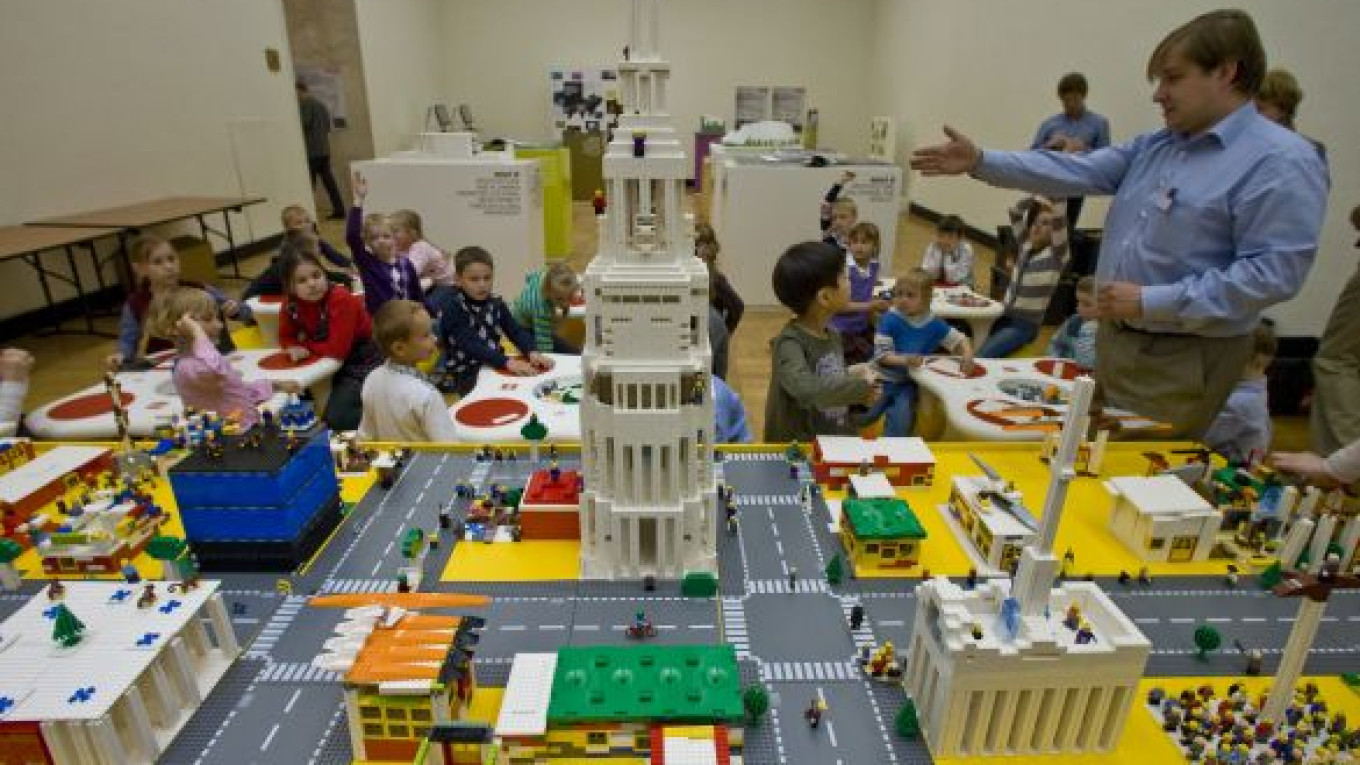“Both the credit and the climate crises make us realize we should focus on developing from within, by developing the existing city,” said curator Bart Goldhoorn, a Dutch architect and long-term resident in Moscow. “There’s still the old Soviet mentality of always building something new, but now we have to deal with the existing, build from the existing dirt to improve what’s already here.”
The biennale focuses on dozens of different topics, but one of the main and most interesting is the future of the city of Perm.
The Perm Museum of Contemporary Art opened in the city in March last year and its arrival has been hyped as turning the city into the new Bilbao. The capital of Spain’s Basque region was a largely unprepossessing industrial city until the Guggenheim opened a museum there in 1997. Since then it has been transformed, featuring regular exhibitions by internationally known artists and becoming a major tourist destination.
Dutch architect Kees Christiaanse has produced an ambitious general plan for regeneration of the city, and the biennale examines its possible transformation.
It is a project that echoes what Goldhoorn writes in his introduction to the biennale is the ethos of the event, dealing with aging cities that do not work, “cities that are often badly designed to start with, that are slowly falling apart and that are inadequate for contemporary life.”
The Second Moscow Architecture Biennale runs through June 6. 10 Krymsky Val. Metro Park Kultury, Oktyabrskaya. www.cha.ru.
A Message from The Moscow Times:
Dear readers,
We are facing unprecedented challenges. Russia's Prosecutor General's Office has designated The Moscow Times as an "undesirable" organization, criminalizing our work and putting our staff at risk of prosecution. This follows our earlier unjust labeling as a "foreign agent."
These actions are direct attempts to silence independent journalism in Russia. The authorities claim our work "discredits the decisions of the Russian leadership." We see things differently: we strive to provide accurate, unbiased reporting on Russia.
We, the journalists of The Moscow Times, refuse to be silenced. But to continue our work, we need your help.
Your support, no matter how small, makes a world of difference. If you can, please support us monthly starting from just $2. It's quick to set up, and every contribution makes a significant impact.
By supporting The Moscow Times, you're defending open, independent journalism in the face of repression. Thank you for standing with us.
Remind me later.


